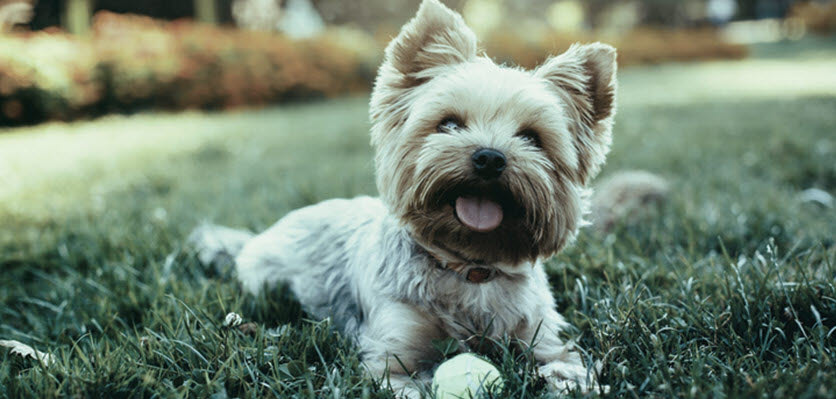The risks of long-lasting chew treats

Dogs require mental stimulation as well as physical exercise to keep them healthy and happy. Offering your dog safe foods or objects to gnaw on is a great way to keep them busy and satisfy their natural urge to chew.
Whilst high-quality commercial dry dog foods are a great way to meet your pet’s long-term nutritional needs, they make for pretty quick mealtimes! As a result, many owners purchase long-lasting chew treats for their dog.
“Natural” style treats are currently very popular and include items such as:
- Rawhide
- Tough jerky-style treats
- Pig’s ears
- Deer antlers
- Cow hooves
Long-lasting food treats, puzzle toys and chew toys offer many potential benefits, such as:
- Helping to keep your pet’s teeth clean.
- Keeping your pet mentally and physically occupied.
- Satisfying your pet’s natural urge to chew, reducing damage to household items. This is particularly important for puppies!
- Distracting your pet if you’re about to leave the house, helping to reduce the development of separation anxiety.
Are long-lasting chews safe for my pet?
Deer antlers and cow hooves are popular for “tough chewers” due to their durable consistency. However, vets frequently see pets with broken teeth as a result of chewing on these harder treats. Broken teeth are painful and can sometimes lead to the development of abscesses, requiring tooth extraction and surgical treatment.
Like any raw meat products, chews such as raw-hide and tough jerky-style treats can be contaminated with harmful bacteria, potentially causing unwellness in pets and in the humans handling them.
Additionally, in pets that don’t chew thoroughly prior to swallowing, large jerky or rawhide treats can get stuck in the oesophagus, where they rehydrate and swell. This causes pain and unwellness, and requires anaesthesia of your pet for retrieval of the stuck treat using long forceps or an endoscope (a small camera with grabbing forceps). Even after removal, damage to the oesophagus from the treat being stuck can cause long-term issues.
As a result, it can be worthwhile to avoid feeding your pet any treats which are too hard and don’t easily bend, due to the risk of tooth damage. Very tough, chewy treats in large strips, such as rawhide, jerky, or pig’s ears are best avoided in pets that “gulp” or don’t chew thoroughly. It is also recommended not to offer these treats to a pet with a sensitive stomach, or in a household where any pet or person has reduced immunity. Any owner handling these treats should wash their hands thoroughly afterwards.
Which long-lasting treats are safest for my pet?
For dental health, vets generally recommend long-lasting dental chews approved by the Veterinary Oral Health Council for proven dental benefits. These are generally safe as long as your pet is supervised to ensure they are chewing the treat into small pieces before swallowing.
To keep your pet busy for longer periods, it is safest to purchase high-quality, durable toys that can be stuffed with food, e.g. Kongs stuffed with peanut butter, frozen tinned pet food, cream cheese etc. Make sure to select a toy that is appropriately sized for your pet according to label guidelines.
Ask your vet for a recommendation on safe chew treats for your pet! For more on dental health maintenance, see here.
